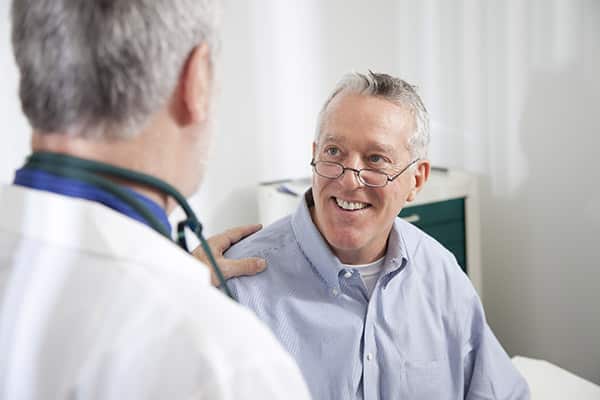How Will Prostate Cancer Affect Me? 5 Possible Changes
 We’ve bottled SPF to protect our skin, particularly since skin cancer is by far the most common type of cancer; how about something for the prostate?
We’ve bottled SPF to protect our skin, particularly since skin cancer is by far the most common type of cancer; how about something for the prostate?
Prostate cancer affects one in eight U.S. men, making it the second most common male cancer following skin malignancies. Prostate cancer will, in fact, represent nearly 15% of all new cancer cases diagnosed in 2024, according to the National Cancer Institute.
Unfortunately, preventing prostate cancer is not like preventing sunburn. Your risk of developing prostate cancer can depend on age, race, and family history, and its prevalence has climbed by 3% a year since 2014.
This means the disease is worth preparing for. The good news is that 99% of men diagnosed with the cancer are expected to recover if it’s caught early, in the localized stages.
Your body and lifestyle will undergo some changes, however. Here’s how prostate cancer may affect you and why.
The Prostate’s Role in the Body
Your prostate weighs about one ounce, but it serves a big job in your reproductive system: producing the fluid that carries sperm. It’s also located in a high-traffic part of your body, just beneath your bladder and around the urethra.
If the cells in your prostate begin to reproduce abnormally, they could grow out of control and form a malignant (cancerous) tumor. Fortunately, prostate cancer tends to grow slowly and, in many cases, is caught before spreading to other parts of the body, including the bones and lymph nodes.
Detecting the symptoms is, therefore, crucial. They include difficulty peeing, blood in your urine or semen, weight loss, and pain in the groin, back, and hips. If the cancer has spread, you might feel pain in your bones.
What to Expect From Your Treatment Options
Your choice of treatment will depend on the cancer stage and your situation. If the cancer is diagnosed before spreading (stage I or II), almost half of men choose surgery. Options include robotic surgery, laparoscopic surgery (removal through a small incision), and cryosurgery (freezing and killing the tissue). Other options include radiation and repeat testing and monitoring (active surveillance).
If the cancer has spread beyond the prostate (stage III and IV), you might undergo immunotherapy, chemotherapy, or hormone treatment, which blocks the production of testosterone, slowing the cancer.
After Treatment: What to Expect
Most treatment options will alter the way your body functions for a time. Following are some of the changes you can prepare for.
Bathroom accidents – About 6% to 8% of men who undergo prostate removal experience some incontinence (leakage). This is typically temporary; you should regain control in a few months to a year. In some men, radiation therapy weakens the bladder. Pelvic exercises (Kegels) will help.
Stay-at-home time – Depending on the procedure and your job, you should take time off of work – up to three to four weeks if you’ve had your prostate removed. If you work from home, you may be able to return sooner.
Temporary intimacy issues – Prostate surgery and/or radiation could affect the nerves and blood vessels, making an erection difficult, so ask about a treatment. Hormone therapy can reduce sex drive by blocking testosterone. In the case of prostate removal, men can no longer ejaculate but can feel orgasms.
Less fats and limited exercise – Surgery patients should avoid strenuous activity and heavy lifting for a month. Ask your doctor about low-impact exercises and Kegels. Eat plenty of vegetables and fruits while cutting back on fatty foods and red meat.
Aftereffects of treatment – Chemotherapy side effects include nausea, hair loss, and fatigue. Hormone therapy could cause weight gain, a loss of bone and muscle mass, and hot flashes.
The Best Way to Adapt to Life After Prostate Cancer: Preparation
After your cancer treatment, plan to revisit your doctor every few months for follow-up exams, including prostate-specific antigen (PSA) tests. These will ensure your body remains cancer-free.
Your preparation can start today. Eat healthy foods, exercise, and avoid cigarettes. And yes, by all means, wear sunscreen to avoid all cancers.
Curious to learn more? Read about prostate cancer symptoms, diagnosis, and treatments on our website. If you’re interested in our clinical trials, visit our website or the American Cancer Society’s clinical trial resource page.

